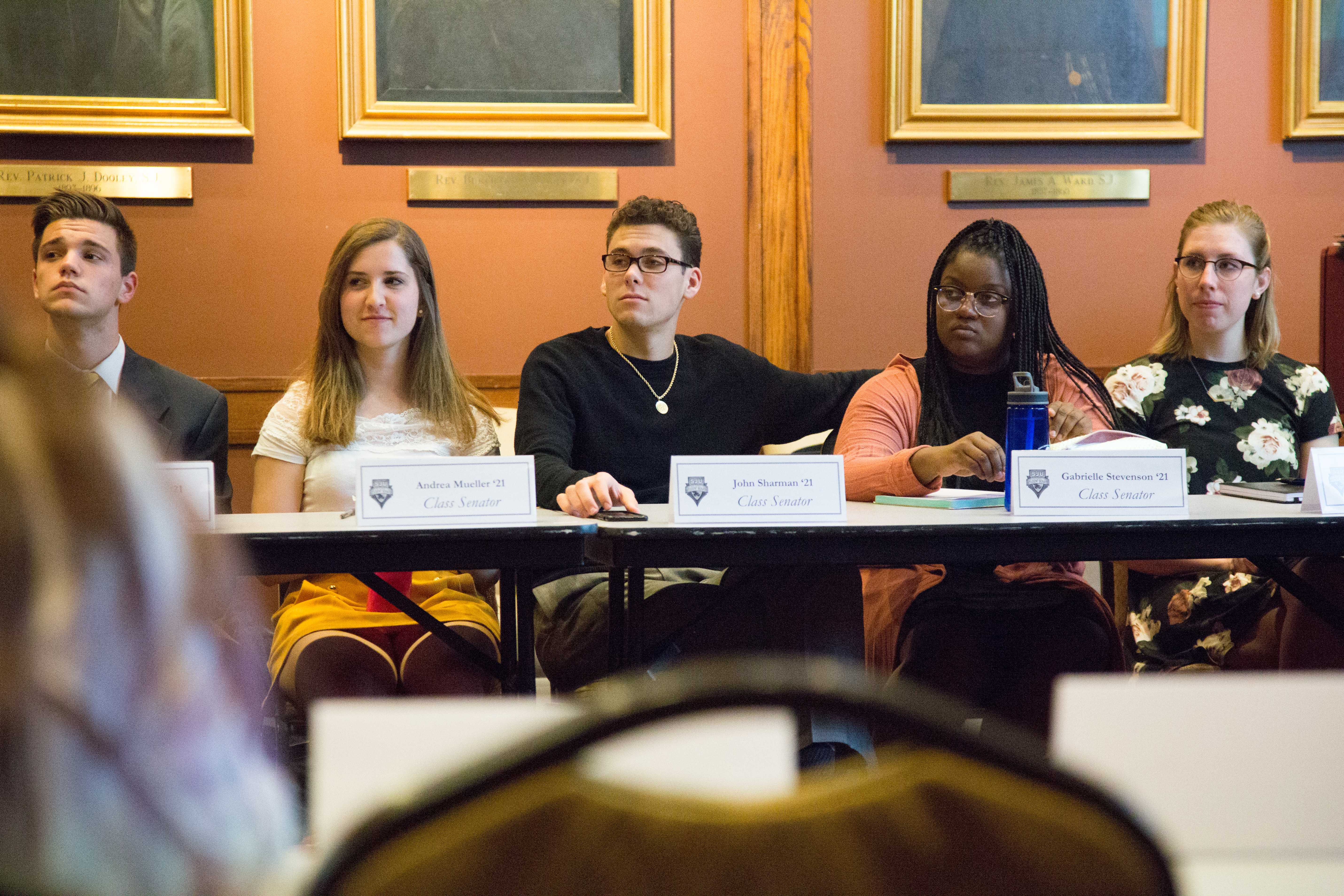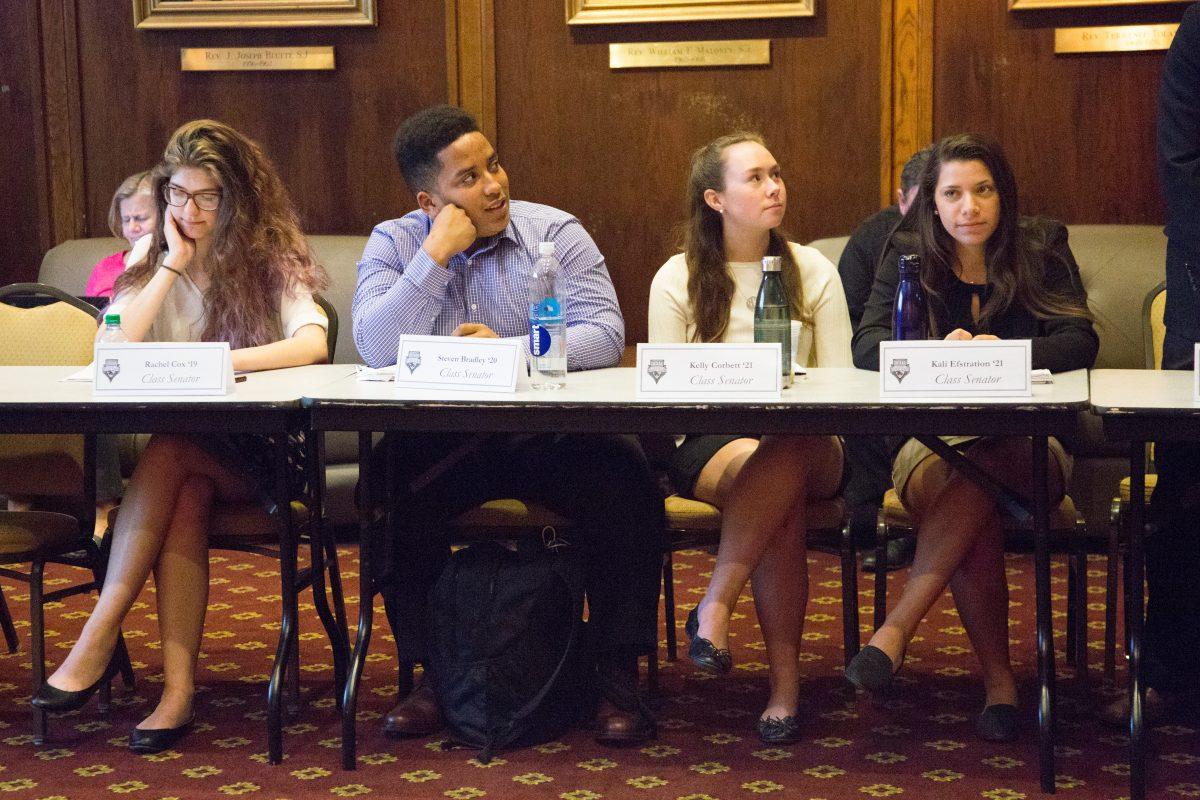Creating a more inclusive campus
The 18th University Student Senate (USS) was sworn in last week with the most diverse group of student senators to date.
The elections have prompted a cautious optimism from some student senators concerning the balance of fulfilling the Jesuit mission and the importance of fostering a diverse and inclusive campus.
Tyler Jackson ’18, who has served on the Student Senate for the past two years, is excited for the incoming class and the potential they bring with them. In his first year on Student Senate, Jackson was the only African American male. Today there are three.
“Excited is the word, that’s the best word I can use for this new beginning,” Jackson said. “Knowing these people, I love the energy they bring, I love the passion they bring to see things change within the university, and they sought the correct office to make that big change happen.”
Gabby Stevenson ’21, one of the new faces Jackson is referring to, is a newly elected senator who is excited to be part of an increasingly diverse senate.
“Not only is it a diverse senate, but you have a large demographic of students that are involved in the Office of Inclusion and Diversity,” Stevenson said. “This will allow for the senate to push for more initiatives like the Campus Climate Survey and give perspective as to why we need to push this as class senators, and as well how to make this campus a little more inclusive.”

With more representation in the senate, Stevenson thinks that people whose voices may have been overlooked, will now have fair representation at the university.
“I think that by having a body of people that can advocate for a large demographic of students that we tend to kind of overlook here, now we have the people in place to sit in the room and be part of the discussion of how do we make sure that everybody on campus feels included,” Stevenson said.
Rachel Cox ’19, a current senator, who served as the senate Diversity & Inclusion Chair in the 17th USS, has a similar outlook. Cox believes the recent student senate elections will result in immediate action that will foster and improve diversity and inclusion on Hawk Hill.
“With the recent elections there is a lot more representation on the senate,” Cox said. “I think that there will be direct action as a result. Sometimes it feels like there is apathy from higher administration to fix some of these issues [of inclusion and diversity]. I think Senate has a very vital role in fixing that, and being the mediator between people in the administration and students.”
Although the senate continues to diversify, the USS will face a number of challenges going forward, and on the forefront will be the Senate’s important role in promoting inclusion and diversity at St. Joe’s.
“It has improved but we still have a lot of room to go,” said USS president Jason D’Antonio ’19. “The senate is a good mirror of our school. So as the school becomes better at bringing in students of different backgrounds and race, things of that nature, so does the senate, and the senate becomes reflective of that.”
Cox is looking forward to future candidates who may be encouraged to run for office based on this year’s senate.
“This is the most visibly diverse senate that we have had, because I can’t ever say for certain how other people have identified in the past,” Cox said. “And I think that is exciting because it will be inspiring to a lot of other people to maybe run for senate themselves.”
Stevenson understands the responsibility that comes with her position, and knows she, along with other members of the senate, will be instrumental in promoting change and a more inclusive and diverse St. Joe’s.
“At St. Joe’s, we have a lot of work and progress to be made as a community,” Stevenson said. “The progress is going to come, but it has to be prompted by somebody. It has to be a group of people that care about St. Joe’s. I do care about St. Joe’s, and I want us to have a more inclusive environment.”













































